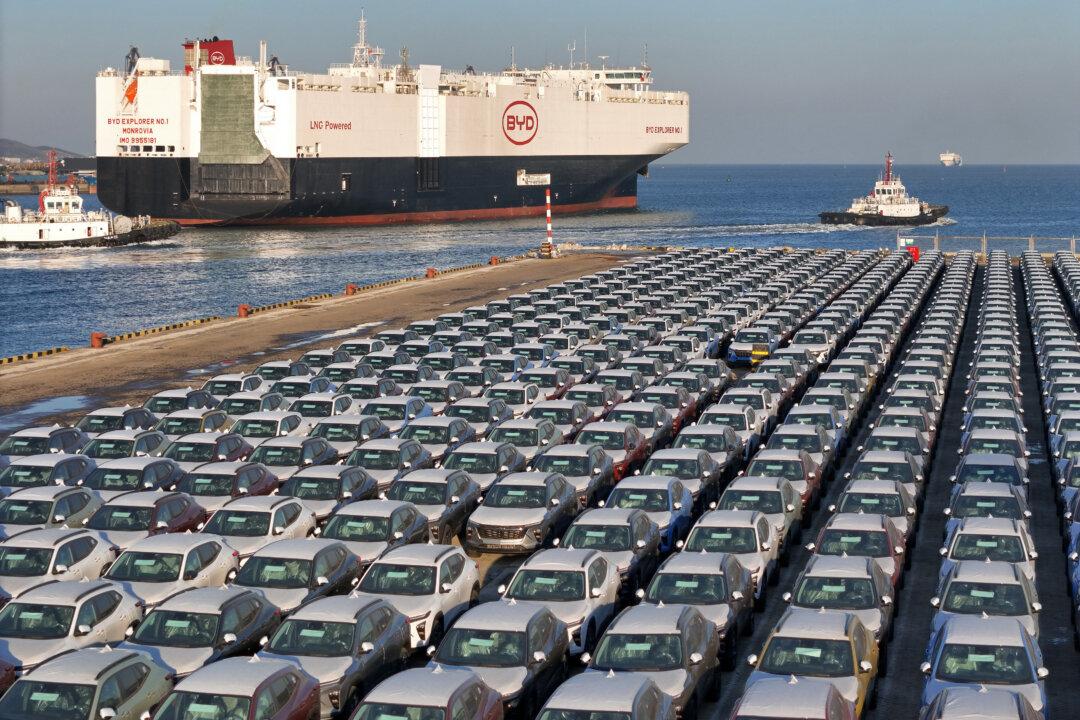During China’s Lunar New Year holiday period from Feb. 10, news reports on a massive forest fire in southwestern China were censored, as the ruling communist regime attempted to create a false sense of peace and prosperity during the holidays.
Starting Feb. 10, massive forest fires spread near more than 20 cities—including Guiyang, Zunyi, Bijie, Jinsha, and Anshun—and across counties in Guizhou Province. Videos circulating online showed massive fires during the night, resembling a wall of flames. The burnt area was equivalent to twice the size of Taiwan.
Online Censorship
Given the regime’s track record of concealing and falsifying information in such disasters, the above claims by the Chinese state media cannot be verified.However, insiders revealed to The Epoch Times that the Chinese Communist Party (CCP) ordered the censorship of news about the forest fires.
A local resident named Song Yang (alias), who participated in the rescue efforts in Guian New Area, Guizhou Province, told The Epoch Times that he posted a video about the forest fire online. Immediately afterward, local authorities sent him a message claiming that the online censors found he had posted the video and demanded its removal. Mr. Song said that he dared not discuss the matter further due to fears of imprisonment.
Additionally, a message circulated online that was allegedly sent by a police officer named Dai to local residents. The message warned people not to post videos on social media platforms if a fire breaks out, stating that there will be legal responsibilities if posting online leads to negative public opinion.
Furthermore, Tang Fei (alias), a reforestation worker in Guizhou Province, told The Epoch Times that the fire in the local forest was massive.
Hiding an Economic Downturn
According to tradition, the third plenary session of the 20th Central Committee of the CCP should have been convened last autumn. However, with less than two weeks left before the opening of the “Two Sessions” for China’s rubber-stamp congress, the regime has not announced when the third plenary session will be held.Katsuji Nakazawa, a Tokyo-based senior staff and editorial writer at Nikkei Asia, analyzed in an editorial that the third plenary session did not convene last year due to Chinese leader Xi Jinping’s unwillingness to expose his weaknesses. Xi will only convene the meeting when he is certain that he can demonstrate his strength.
The CCP is attempting to cover up the economic decline and the pain of unemployment among the Chinese people.
China’s stock and property markets are also in dire straits.
The CCP has introduced stimulus policies to rescue the weak stock and property markets. From January to February this year, state-backed government funds purchased about 70 billion yuan (US$9.7 billion) worth of stocks to boost the stock market index.
In January, companies listed in mainland China and Hong Kong spent 14 billion yuan (US$1.94 billion) and HK$21 billion (US$2.6 billion), respectively, to buy back stocks, each setting the highest record since Bloomberg began compiling data in 2021.

On Jan. 24, Pan Gongsheng, the governor of the People’s Bank of China, which is China’s central bank, announced a 0.5 percentage point reduction in the reserve requirement ratio effective Feb. 5, releasing long-term liquidity of 1 trillion yuan (US$140 billion) to the market. This was the largest reserve requirement ratio cut since 2021.
Recent Natural Disasters
In addition to the economic downturn, China has also experienced frequent natural disasters over the past few months, such as earthquakes, landslides, and severe cold weather.In December last year, a 6.2 magnitude earthquake struck Jishishan County, Gansu Province, resulting in over 130 deaths, 1,000 injuries, 12 residents missing, and approximately 87,000 displaced.
Last year, Beijing experienced its coldest December in over 70 years. Beijing residents spent over 300 hours in sub-zero temperatures. The duration of temperatures below minus 10°C broke historical records.
The Chinese regime routinely attempts to hide incidents and natural disasters that result in deaths due to fears of negative public reaction. The CCP constantly uses propaganda to paint a picture of stability and prosperity, and the Chinese censors closely monitor online users’ posts that may undermine the state’s official narrative.






